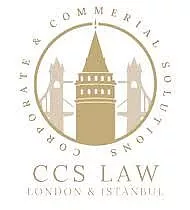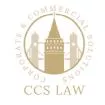- within Corporate/Commercial Law topic(s)
- within Corporate/Commercial Law topic(s)
- with readers working within the Banking & Credit industries
- within Environment, Real Estate and Construction and Consumer Protection topic(s)
- in United Kingdom
International and domestic businesses operating in Turkey often face challenges in recovering unpaid debts. Whether the debtor is an individual, a company, or a larger corporate group, understanding the legal remedies available under Turkish law is crucial for efficient debt recovery. At CCS Law, we regularly assist foreign investors, SMEs, and multinational companies in navigating Turkey's debt collection framework.
In this article, we answer some of the most frequently asked questions from businesses about debt collection in Turkey and highlight practical legal options available.

1. What is the legal basis for debt collection in Turkey?
Debt collection in Turkey is governed primarily by the Enforcement and Bankruptcy Law and supported by the Turkish Code of Civil Procedure. Businesses can pursue their receivables either through:
- Civil enforcement proceedings (via enforcement offices)
- Commercial litigation (through Turkish courts)
- Alternative dispute resolution (arbitration and mediation)
- Debt assignment
As we explained in our earlier article,Debt Collection in Turkey: Methods and Processes, creditors have flexibility in choosing enforcement or litigation depending on their evidence, contractual arrangements, and strategy.
2. How do enforcement proceedings work for businesses?
Enforcement proceedings are the fastest and most common method of debt collection in Turkey.
- Application to Enforcement Office – The creditor submits a claim petition, documentation (contracts, invoices, promissory notes), and debtor details.
- Payment Order – The debtor is notified and has 7 days to pay or object.
- No Objection – If no objection is raised, the creditor may seize and sell the debtor's assets.
- Objection – If the debtor objects, the process moves to court, where the creditor must prove the debt.
This process is especially attractive to businesses with strong documentary evidence.
3. Can businesses pursue litigation instead of enforcement?
Yes. Some creditors prefer to start with litigation to obtain a binding judgment before moving to enforcement. This may be useful when:
- The debt amount is disputed.
- The debtor has a history of raising objections.
- There is a need for a detailed court ruling to establish liability.
Once the court issues a decision, it can be enforced through the enforcement office.
4. What about fraudulent or dishonest debtors?
When debts arise from fraudulent acts, businesses can pursue both civil and criminal remedies.
- Criminal Complaint – Fraud cases can be reported to Turkish prosecutors with supporting documents.
- Criminal Investigation – If evidence is sufficient, the debtor may face prosecution, fines, or imprisonment.
- Leverage in Negotiation – As explained in Debt Collection in Turkey: Solutions for Foreign Individuals and Entities, combining civil and criminal actions often motivates debtors to settle quickly.
5. Are there alternative remedies like mediation or arbitration?
Yes. Turkish law encourages alternative dispute resolution:
- Mediation – Now mandatory in many commercial disputes, mediation allows businesses to reach practical settlements, often enforceable as court judgments.
- Arbitration – Where contracts contain an arbitration clause, disputes can be resolved faster and confidentially. Arbitration awards are enforceable in Turkey under international conventions.
These options are particularly beneficial for cross-border contracts.
6. Can a business assign its receivables?
Yes. Creditors can assign debts to third parties (e.g., factoring companies) to collect part of the receivable quickly. While this means accepting a discount on the claim, it allows businesses to maintain cash flow without waiting for lengthy litigation.
7. How can company structure affect debt liability?
Company type is critical in understanding debt collection risks. As noted in our article, Comparing Limited and Joint Stock Companies in Turkey, liability for public debts (like taxes or social security contributions) may extend to managers in limited companies. For joint stock companies, shareholders are generally only liable up to their subscribed capital. Businesses pursuing debt collection should always review the debtor company's legal form and management structure.
8. About CCS Law
- Corporate and Commercial Expertise – We regularly assist businesses in complex debt recovery, from SMEs to multinational groups.
- End-to-End Service – From initial consultation to enforcement, litigation, or criminal proceedings, we provide a complete solution.
- Multilingual Team – Our team communicates effectively with international clients.
- Asset Tracing – We help track and recover assets, ensuring maximum efficiency.
- Local Presence – With a strong network in Istanbul, Ankara, Izmir, and across Turkey, we represent clients throughout the country.
Debt collection in Turkey can be complex, but with the right legal strategy, businesses can recover receivables efficiently. Whether through enforcement, litigation, fraud proceedings, or alternative remedies, CCS Law provides tailored, business-oriented solutions.
Originally published 22 August 2025.
The content of this article is intended to provide a general guide to the subject matter. Specialist advice should be sought about your specific circumstances.
[View Source]

